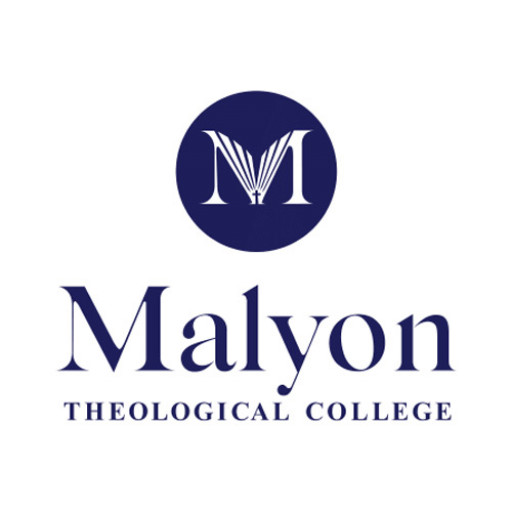program_title: Pastoral Theology
degree_level: Master's Degree
program_duration: 1 Year Full-Time / 2 Years Part-Time
study_mode: Full-Time, Part-Time
delivery_method: Lectures, Seminars, Practical Workshops
entry_requirements: Bachelor's Degree or equivalent in Theology, Religious Studies, or related fields; Relevant professional experience may be considered
program_overview:
The Master of Pastoral Theology at Heythrop College offers a comprehensive exploration of the theoretical and practical aspects of pastoral work within diverse religious and community contexts. This programme is designed for individuals intending to develop their pastoral skills, deepen their understanding of faith-based ministry, and enhance their ability to serve effectively in various pastoral roles. Throughout the course, students engage with core theological concepts, pastoral care principles, counseling techniques, and ecclesiastical policies, equipping them with a holistic understanding necessary for contemporary pastoral practice. The curriculum integrates academic study with practical training, including supervised placements and community engagement activities, allowing students to apply learned skills in real-world settings. Emphasising reflective practice and ethical considerations, the programme fosters personal spiritual development alongside professional competence. Students will have opportunities to specialize in areas such as chaplaincy, youth ministry, pastoral counseling, and interfaith dialogue, tailored to their vocational interests. The programme also encourages critical thinking about social justice issues, minority rights, and the role of faith communities in addressing societal challenges. Graduates of this programme are prepared for leadership roles within churches, religious organizations, educational institutions, and community services. They will leave with a robust understanding of pastoral theology's philosophical foundations and practical methodologies, enabling them to serve with compassion and professionalism. The course is delivered by experienced faculty members and seasoned practitioners dedicated to fostering an inclusive, reflective learning environment. Successful completion of the programme provides students with the academic qualification necessary for further research or professional certification in pastoral ministry and related fields.
Pastoral Theology at Heythrop College offers students a comprehensive and in-depth exploration of the principles, practices, and theological foundations of pastoral care and ministry. This programme is designed to equip students with the necessary skills and knowledge to serve effectively within various religious, community, and social settings. Throughout their studies, students will examine the biblical, historical, and doctrinal bases of pastoral practice, gaining insights into how faith informs compassionate and ethical care for individuals and communities. The curriculum includes modules on pastoral counselling, spiritual guidance, ethics in ministry, interfaith dialogue, and community engagement, all aimed at fostering a holistic understanding of the pastor's role in contemporary society. Emphasis is placed on developing practical skills through supervised placements, internships, and collaborative projects, allowing students to apply theoretical knowledge in real-world contexts. The programme also encourages reflection on personal faith and ministry identity, emphasizing the importance of personal formation and resilience in pastoral work. With a combination of lectures, seminars, workshops, and independent study, students are supported to critically engage with current issues faced by pastoral caregivers. Graduates of the programme are prepared for a variety of roles within religious communities, chaplaincy, social services, and further academic research. Overall, the Pastoral Theology programme at Heythrop College provides a robust platform for those seeking to deepen their understanding of faith-based care and to develop the practical skills needed to serve others with compassion, integrity, and theological insight.
The programme in Pastoral Theology at Heythrop College requires students to complete a balanced curriculum that includes foundational theological studies, specialized pastoral training, and practical ministry components. Students must undertake coursework in biblical studies, Christian doctrine, and ethics, ensuring a robust theological grounding. Additionally, the programme emphasizes the development of pastoral skills such as counseling, pastoral care, liturgy, and community engagement.
To qualify for graduation, students are typically required to complete a set number of credit hours, including core modules and electives tailored to specific pastoral functions. Practical placements or internships are an integral part of the programme, providing real-world experience in parish settings, hospital chaplaincy, or other community service organizations. Supervised pastoral practice allows students to integrate theoretical knowledge with practical ministry skills under the guidance of experienced mentors.
Assessment methods generally include written assignments, presentations, exams, and practical evaluations. Students are also expected to participate in seminar discussions, workshops, and reflective practice exercises to enhance their understanding and approach to pastoral ministry. The programme encourages research and academic development through dissertation or thesis projects focused on contemporary issues in pastoral care and theology.
Admission requirements typically include a relevant undergraduate degree, a demonstrable commitment to ministry, and sometimes references or recommendations. The programme also values personal qualities such as compassion, ethical integrity, and effective communication skills. Overall, graduates of the Pastoral Theology programme at Heythrop College are prepared for various roles within church communities, religious organizations, and chaplaincy services, equipped to serve with competence and ecclesiastical sensitivity in diverse pastoral settings.
Funding options for the Pastoral Theology programme at Heythrop College primarily include a range of scholarships, bursaries, and student loans available to both domestic and international students. Prospective students are encouraged to explore the university's official website for specific scholarship opportunities, which may be based on academic merit, financial need, or specific criteria such as religious affiliation or community service. The UK government offers student loans for eligible students pursuing higher education degrees, which can cover tuition fees and living expenses. International students may need to seek external funding sources or grants from religious organizations or charitable foundations aligned with their studies in pastoral care. Heythrop College also provides information about external funding bodies and organizations that support students in theological and pastoral studies. Additionally, students are advised to consider part-time employment opportunities both on and off-campus to help finance their studies. Some students may also access funding through church or community sponsorship, especially if their future career plans involve pastoral responsibilities within specific religious communities. The college’s financial aid office offers guidance and support in preparing applications for available funding sources. Overall, financing a degree in Pastoral Theology at Heythrop College involves a combination of university scholarships, government loans, external grants, and personal or community contributions, making it possible for a diverse range of students to pursue their academic and vocational goals in pastoral ministry.
Pastoral Theology at Heythrop College offers students a comprehensive understanding of the theological foundations and practical applications of pastoral work. This programme is designed to equip future pastors, chaplains, and religious leaders with the necessary skills to serve diverse communities within ecclesiastical and secular settings. The curriculum integrates biblical studies, church history, ethics, and spirituality, allowing students to develop a nuanced approach to pastoral care. Emphasis is placed on developing competencies in counselling, crisis intervention, community engagement, and interfaith dialogue, reflecting the multifaceted nature of contemporary pastoral work.
Students will have the opportunity to explore the theological underpinnings of pastoral ministry, engage in practical placements, and participate in supervised pastoral practice to hone their skills in real-world environments. The programme promotes critical reflection on the role of faith in public life and encourages an understanding of cultural diversity and social justice issues as integral parts of pastoral work. Through seminars, workshops, and fieldwork, students are prepared to address complex pastoral needs in various settings, including hospitals, prisons, educational institutions, and community organizations.
The faculty comprises experienced theologians and practitioners who bring valuable insights from their own ministerial backgrounds, fostering an environment of mentorship and professional development. Graduates of the Pastoral Theology program are well-positioned to undertake leadership roles within religious communities and to contribute meaningfully to societal well-being. The program's structure allows for part-time and flexible study options to accommodate working professionals. Overall, it aims to cultivate compassionate, theologically informed, and socially responsible leaders equipped to meet the challenges of contemporary pastoral ministry.





